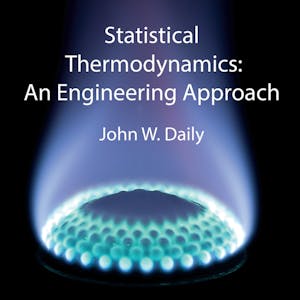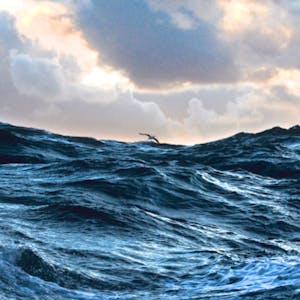Statistical Thermodynamics
About this Specialization
This specialization was developed for the mechanical or aerospace engineering advanced undergraduate graduate or graduate student who already has a strong background in undergraduate engineering thermodynamics and is ready to tackle the underlying fundamentals of the subject. It is designed for those entering advanced fields such as combustion, high temperature gas dynamics, environmental sciences, or materials processing, or wishes to build a background for understanding advanced experimental diagnostic techniques in these or similar fields. It covers the relationship between macroscopic and microscopic thermodynamics and derives properties for gases, liquids and solids. It also covers non-equilibrium behavior as found in kinetic theory and chemical kinetics. The main innovation is the use of the postulatory approach to introducing fundamental concepts and the very clear connection between macroscopic and microscopic thermodynamics. By introducing basic ideas using postulates, students are given a very straightforward way to think about important concepts, including entropy and temperature, ensembles and quantum mechanics.Created by: University of Colorado Boulder

Related Online Courses
This specialization is intended for people without technical experience who seek to develop bash scripting skills and learn about Unix tools that will allow them to perform basic system... more
Being a successful FinTech firm requires more than just great technology; it also requires an understanding of the laws and regulations applicable to your business. This course will provide you... more
This course provides participants with a comprehensive understanding of how custom GPTs can be leveraged for strategic decision-making in business. It begins with an introduction to custom GPTs,... more
In this specialization, you will experience what it is to go from idea to code. These courses are specifically created for the manager, designer, or entrepreneur who is an active, hands-on... more
The course for a round the world regatta leads the boats through the Mediterranean Sea and the Atlantic, Southern Indian and South Pacific Oceans. On their voyage, the skippers come across a large... more








